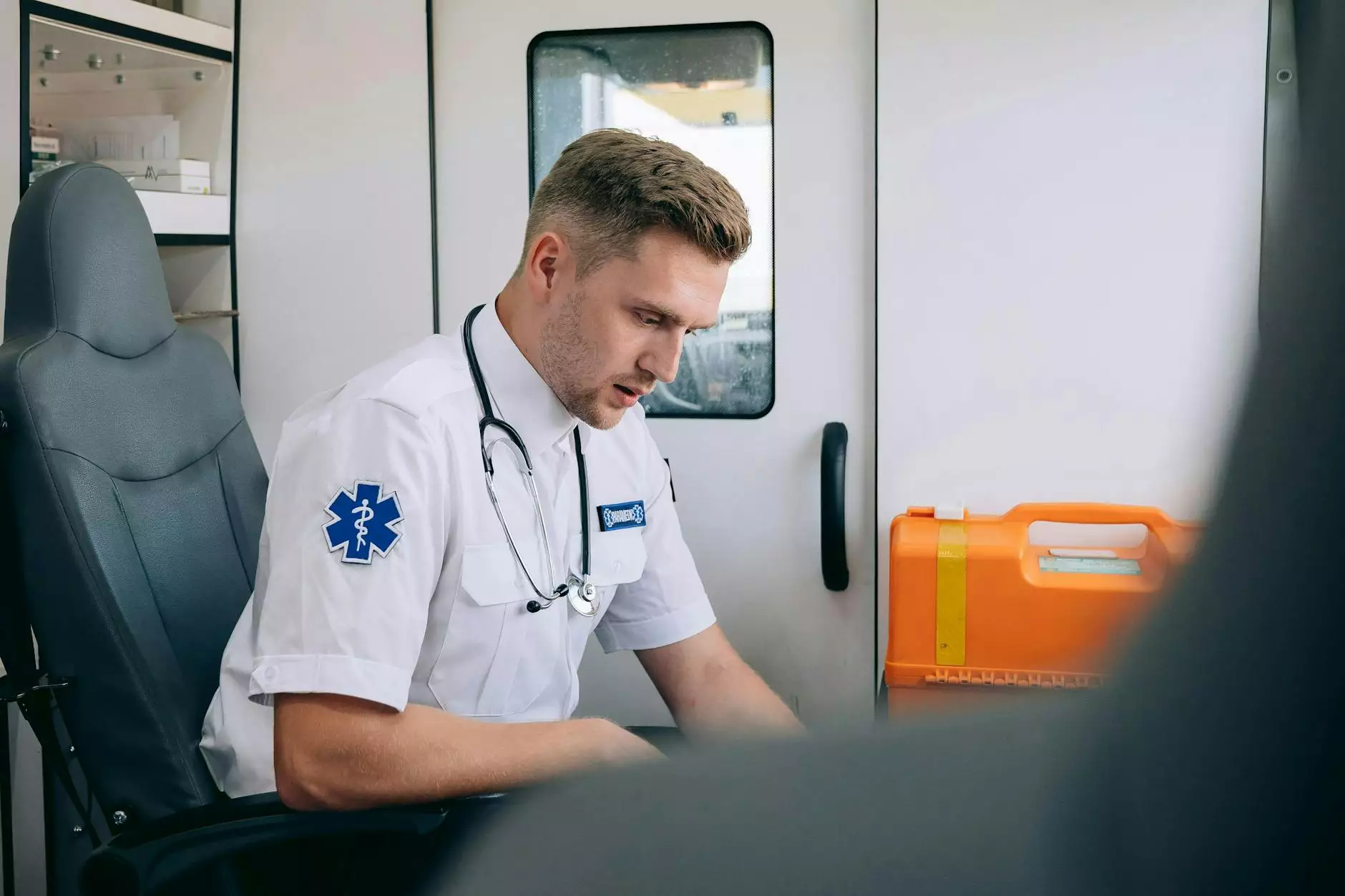The Essential Role of a Lung Doctor in Health and Wellness

The lung doctor, also known as a pulmonary specialist, plays a crucial role in maintaining and improving respiratory health. In today’s fast-paced world, where air quality can be compromised and respiratory issues are on the rise, understanding the significance of a lung doctor has never been more important. This article will explore the vital contributions of lung doctors within the realms of Health & Medical, Sports Medicine, and Physical Therapy.
Understanding the Role of a Lung Doctor
A lung doctor specializes in diagnosing and treating conditions that affect the lungs and respiratory system. They are trained to handle a wide variety of respiratory issues, from asthma and chronic obstructive pulmonary disease (COPD) to lung cancer and interstitial lung diseases. Their expertise is critical in helping patients maintain optimal lung function and overall health.
Common Conditions Treated by Lung Doctors
- Asthma: A chronic condition that causes inflammation and narrowing of airways, leading to difficulty breathing.
- Chronic Obstructive Pulmonary Disease (COPD): A progressive disease that damages the lungs and restricts airflow.
- Lung Cancer: A type of cancer that originates in the lungs, requiring early detection and specialized treatment.
- Interstitial Lung Disease: A group of disorders affecting the lung tissues, which can impact breathing and lead to scarring.
- Sleep Apnea: A serious sleep disorder where breathing repeatedly stops and starts, impacting overall health.
The Importance of Early Diagnosis and Treatment
Early diagnosis and timely treatment are essential factors in managing respiratory conditions. A lung doctor employs various diagnostic tools, including:
- Chest X-rays: To visualize the lungs and detect abnormalities.
- CT Scans: Offering more detailed images of lung structures.
- Pulmonary Function Tests (PFTs): To assess lung function and capacity.
- Bronchoscopy: A procedure allowing direct visualization of the airways.
With these advanced diagnostic methods, lung doctors can formulate personalized treatment plans tailored to the individual's specific needs, ultimately enhancing patient outcomes.
Integrating Sports Medicine with Lung Health
For athletes and active individuals, maintaining lung health is paramount to performance. Sports medicine professionals often collaborate with lung doctors to ensure that athletes are not only at peak physical condition but also have optimal respiratory health.
Respiratory Considerations in Sports Medicine
A lung doctor can help athletes manage conditions that may impair their performance, such as exercise-induced bronchoconstriction (EIB) or asthma. They provide education on recognizing symptoms and developing effective management strategies, which might include:
- Asthma Action Plans: Tailored strategies for athletes to manage their condition during training and competition.
- Breathing Techniques: Instruction on techniques that can enhance lung function and endurance.
- Environmental Awareness: Educating athletes about how various environmental factors can impact their respiratory health during training and games.
By integrating expertise from both sports medicine and pulmonary health, athletes can achieve their best performance while safeguarding their respiratory well-being.
The Role of Physical Therapy in Lung Health
Physical therapy is often an integral part of the recovery and management process for individuals with respiratory conditions. Lung doctors frequently recommend physical therapy to help patients regain strength and improve their lung capacity.
Benefits of Physical Therapy for Lung Health
Physical therapists work closely with lung doctors to design rehabilitation programs that may include:
- Breathing Exercises: Techniques to strengthen respiratory muscles and improve lung function.
- Aerobic Training: Programs to enhance physical fitness without exacerbating respiratory issues.
- Education: Teaching patients how to manage their condition through lifestyle modifications and physical activity.
Such collaborative efforts can lead to improved quality of life and enhanced physical abilities for patients struggling with lung conditions.
Innovations in Lung Health Treatment
The field of lung health is constantly evolving, with numerous advancements in treatment approaches and technologies. Lung doctors are at the forefront of these innovations, constantly adapting to provide the highest level of care to their patients.
Some notable innovations include:
- Telemedicine: Allowing patients to consult with lung specialists remotely, expanding access to care.
- Advanced Imaging Techniques: Such as high-resolution CT scans that can provide detailed information about lung structure and function.
- Targeted Therapies: New medications that specifically target underlying mechanisms of diseases, offering more effective treatments with fewer side effects.
- Chronic Care Management Programs: Comprehensive care models that support patients with chronic respiratory conditions through education, lifestyle management, and continuous monitoring.
Conclusion: The Vital Contributions of a Lung Doctor
In summary, a lung doctor is an indispensable part of the healthcare system, especially for individuals dealing with respiratory issues. Their specialized knowledge and techniques are crucial in diagnosing, treating, and managing various lung diseases. Moreover, their collaboration with professionals in sports medicine and physical therapy highlights the importance of a holistic approach to respiratory health.
By prioritizing lung health through regular check-ups, understanding respiratory conditions, and adhering to treatment regimens, individuals can lead healthier, more active lives. Utilizing the expertise of a lung doctor ensures that lung health is not only preserved but optimized, paving the way for a brighter, healthier future.









